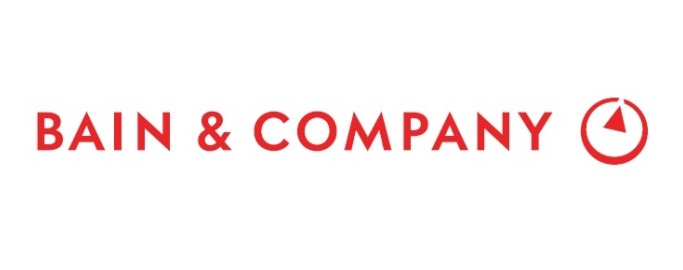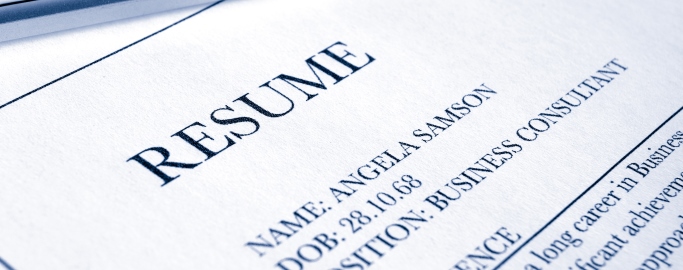
Bain & Company is a world-renowned strategy consulting firm. They have been ranked the #1 best firm to work for by Consulting magazine for the past nine years. This leading firm works with large corporations and multinationals across industries throughout the world.
With such a prestigious reputation, it is not surprising that many aspiring consultants want to jump start their career at this organization. Because this job market is so competitive, failing to submit an eye-catching consulting cover letter would be a huge mistake. Recruiters at top-tier consulting firms, such as Bain, will not spend a lot of time reviewing your application, so a well-written and complete application is a must.
A complete consulting application includes more than an impressive resume; you also need an equally remarkable cover letter. In fact, the results from a recent survey revealed that 75% of employers indicated that a well presented cover letter can significantly improve the chances of a less eligible candidate landing an interview, and that 53% of employers favor applications with both a resume and cover letter.
A cover letter provides you with an opportunity to highlight your relevant skills and experiences as well as convey your enthusiasm for the consulting industry, so take advantage of it. You can look online for Bain cover letter samples to guide you in writing your application.
What Bain Looks For
Bain looks for candidates who can demonstrate they possess qualifications imperative to consulting such as sharp problem solving and strong leadership skills and a true passion for consulting.
Sharp problem solving skills are indispensable for any aspiring Bain employee. If you are not sure how to incorporate your problem solving skills in your cover letter, begin by providing short yet specific accomplishments from your previous roles that demonstrate this skill. Remember, you need to exhibit this capability in order to move on to the case interview. Although your problem solving skills and thought process will be further evaluated during the case interview, you must first give them a glimpse of your potential in order to get to the next stage.
Bain is also impressed with aspiring consultants who present a results-oriented track record. You do not need to list all of your previous successful projects in your cover letter, simply highlight the most impressive one.
Strong leadership qualities are essential if you really want to work at Bain. The firm explicitly states that they seek out candidates with proven leadership experience. Whether your experience in this area is school or work-related or even through your extracurricular activities, make sure your application displays this necessary trait.
Bain values applicants who show genuine passion for consulting and for life in general. Bain also appreciates enthusiastic candidates who want to make a change in the world. You can demonstrate your passion for consulting through the relevant experience or achievements you include in your application. You can also demonstrate your passion for change by citing your activities outside the office such as volunteer work.
When applying for a consulting position at Bain, you must be able to clearly demonstrate the characteristics listed above in your cover letter and resume.
Bain Cover Letter Structure
Your consulting cover letter should only contain three to five paragraphs, and the information needs to be presented in a concise yet comprehensive manner.
Bain Cover Letter Sample: Contact Information and Salutation
The most important thing you need to remember for this section is accuracy. As the recruiter will use the details you provide here to notify you, ensure that your email address and phone number are functional and accurate. Double check your contact information before you send your application.
Moreover, do not forget to address your letter to the correct person and list his or her title at the company. Many candidates overlook this simple detail when writing their cover letters. In fact, according to feedback from top employers listed in the book, The 100 Best Companies to Work For, 91% implied that addressing a cover letter to the appropriate individual improves an applicant’s chances of getting an interview. This is because it reflects the extra time you took to research and personalize your letter as well as your great attention to details. Failing to address these aspects in your cover letter may hurt your application.
Bain Cover Letter Sample: Introduction
The first paragraph is where you mention the purpose of your letter, which is applying for the consulting position. It needs to be interesting enough to encourage the screener to read the rest of your application. Basically, this section of your letter should address the question, “Why this job?” Explain how you came to know about the job opening and briefly state why you are interested in the position. Sound sincere and do not just repeat their publicity materials. A good Bain cover letter demonstrates that you have done your research and that your letter is targeted toward the organization and have not simply sent out the same cover letter to other employers.
To convey an original, targeted, and interesting voice, you can mention any of the following: networking, articles, or events. If you happen to have a conversation with a Bain employee, you may mention how that person has inspired you to pursue consulting. You may also refer to an event, such as an inspirational talk, wherein you learned the value of working at Bain. And you may state a particular case Bain handled that has inspired you to get into consulting.
Check Bain’s website for company information or ask colleagues who are associated with them, so you can add something original in your letter. You may also check out other consulting sites for good Bain cover letter samples.
Example:
“I am interested in the Associate Consultant position at Bain & Company. I have an avid interest in management consulting, and my conversation with Mr. X, one of your senior consultants, has further inspired me to seek this position. I believe this opportunity will provide me with unparalleled experience in business consulting.”
Bain Cover Letter Sample: Middle Paragraphs
The middle section of your consulting cover letter should answer the question, “Why me?” This section can be either one or two paragraphs and convey all your significant work experience and how it relates to the vacancy. Explain briefly and clearly why you are suited for the position without using the exact same words or phrases on your resume. Refer to your most relevant skills and accomplishments and match them to the requirements of the consulting position.
Example:
“My economics studies at Toronto University have provided me with analytical skills which I will apply to diverse business scenarios. My three years of experience as a marketing manager at Accelerator honed my ability to develop and implement marketing campaigns, as well as how to effectively collaborate with a team. I led a team which devised marketing initiatives for a global campaign for Z Brands, which resulted in a 25% increase in sales after three months.
I enjoy working with teams and hold several leadership positions within my various extracurricular activities. I am currently the Vice President for X Group, and I also participate in a non-profit organization that tutors local youth in math and reading. I believe that my strong work ethic, analytical skills, and initiative have given me the requisite skills and ability to contribute to the growth and success of your firm.”
Bain Cover Letter Sample: Conclusion
The closing paragraph of your Bain cover letter should reaffirm your suitability for the role. Demonstrate your enthusiasm about the possibility of working as a Bain consultant and state that you are looking forward to hearing from them. Statistics from the survey mentioned above revealed that 88% of employers agree that applicants should mention their interest in being interviewed in their cover letters.
Finally, do not forget to sign your letter. If you are submitting a paper application, you must place your handwritten signature above your name. This is a sign of proper business etiquette and professionalism. If you are sending an email application, a signature may not be necessary; however, you must not forget to write your name at the bottom of your letter.
Example:
“I look forward to the opportunity of being interviewed in order to share more about my experience and skills that I could bring to your company. Thank you for your time and consideration.”
Common Mistakes to Avoid
A Bain cover letter needs to be perfectly written and presented. If you want to land a consulting job with this prestigious firm, avoid committing the following mistakes:
| Name dropping |
If you have never talked to or met the person, do not mention them. |
| Lengthy cover letter |
Never let your letter run over one page—brevity is best. Screeners will not spend a lot of time on your application, and if your letter exceeds one page, the recruiter may question your written communication skills, which are a critical requirement for aspiring management consultants. |
| Exclamation points |
Mind your exclamation points. You can demonstrate your enthusiasm in a more professional way. |
| Lack of evidence for your claims |
Ensure that whatever you put in your letter is supported by the details in your resume. |
| Typos and grammatical errors |
Such mistakes imply a lack of attention to detail, therefore you must proofread your letter. |
| Poor formatting |
The standard font size is 12 with 1″ margins. Ensure there are enough white spaces as hurting the reader’s eyes will hurt your candidacy as well. |
| Wrong firm name and/or position |
This is a no brainer—mistakes like this will ruin your chances. |
| Rehashing your resume |
Do not waste the recruiter’s valuable time by providing two similar documents to review. |
| Unclear statements |
Read your cover letter and ensure everything makes sense. |
| Lack of numbers |
Failing to include quantifiable accomplishments will not help your application stand out. |
| Insignificant details |
Only mention things that are relevant to consulting such as academic excellence and outstanding social involvement. |
| Omitting power words and keywords |
Ensure to sprinkle your letter with active and strong words like “managed,” “organized,” “implemented,” etc., and incorporate keywords related to the consulting position. |
You Might Also Like...










